August 24, 2020
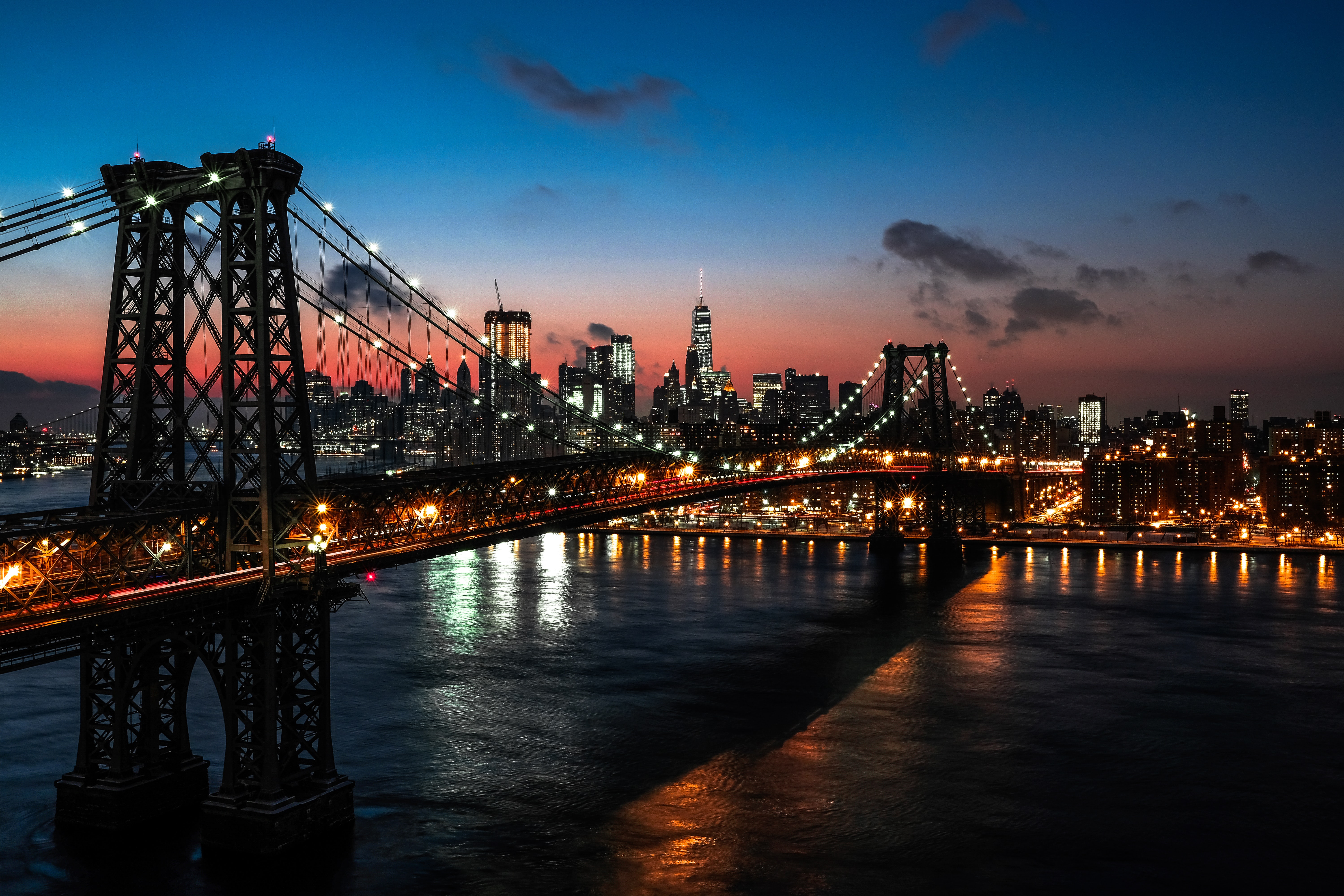
Everything that people say is negative about New York City is true. It’s too noisy, too crowded, too smelly, too expensive.
The people who live there are brusque. They’re constantly in pursuit of more. More money, more power, more wealth. And because you all live on top of each other, you’re constantly reminded of what you don’t have. Being surrounded by so many people, you can either become overwhelmed with sonder and empathy or toughen up and focus on yourself.
I once read, “Everyone in the world is self-centered. It’s only the radius that differs.” New York shrinks that radius. During my time in New York, I found myself becoming slightly more selfish, more callous, more transactional in interpersonal interactions.
Despite all of that, I fucking love New York. It’s the greatest city on Earth.
City of Strivers
New York is a city where the entire world comes together in a melting pot. It’s a city where you can hear just about any language in the world spoken on the subway. Where you can walk out of your apartment and have any cuisine that you could imagine in the next 30 minutes.
If Las Vegas is the id of the US, New York is the country’s ego. An Israeli immigrant once told me: “In New York anyone can become rich. You need to bust your ass to do it…but you can.”
New Yorkers (of the born and raised variety) are the most tolerant and accepting people in the world. They’ve had to get along with cultures from across the globe: people of different races, who speak different languages, have different religious practices. So growing up in this morass of culture, they learn how to get along with others – not in a tiptoe-y PC way, but by learning not to give a shit about what other people do and speaking the truth without qualification.
The subway is a great equalizer in New York. Blue collar workers from the outer boroughs get on the train first, so they often have a seat on the train while the Masters of the Universe stand in their suits.

Living in New York is hard. But that struggle begets motivation. Satisfaction is not a character trait of those who change the world. Much like you need to place your muscles under stress for them to grow, the stress of living in the city creates the motivation and discomfort necessary to create great art and great companies. There is a palpable sense of this communal labor.
In June, when the city was under curfew, I walked into the deli on the corner of Canal and Eldridge in Chinatown. Its windows were boarded up to deter looters that had tried to break in the night before. A man dressed in all black (standard 2020 protest uniform) walked in and started talking to the owner.
He said, “You call me if those looters come around again and I’ll be here in less than five minutes. We’re fucking New Yorkers. We don’t do that.”
That’s New York City.
Enter COVID
All that said, after four months of being quarantined in my Chinatown apartment, I left New York.
Like every other stereotypical millennial, I moved to New York for two reasons:
- Career opportunities
- The culture – restaurants, bars, comedy, art, etc.
And like many others, over the past several months living in New York, I realized the pandemic highlighted all of the negatives of the city without the reciprocal positives. It doesn’t matter that New York is a center of tech when the entire industry is working remotely. And when you can’t take advantage of the amenities of the city, it starts to make a lot less sense to live in a small Manhattan apartment, no matter how convenient the subway access is. Add in the bawling HVAC equipment from the illegal dumpling shop downstairs, the helicopters buzzing directly above my apartment to cover the protests on the Manhattan bridge, and cannibal rats and it was time to leave New York. The eustress of living in New York, that motivating discomfort, became the distress of trying to survive Coronavirus in a tiny apartment.
I find myself nostalgic for what was just a few months ago. I’ll miss New York. I’ll miss getting punched in the face at Trinity Boxing Club, Wednesday night comedy shows in Williamsburg, eating and drinking in Red Hook, my favorite bar on the Lower East Side. In summer, the daily ritual of being asked for directions by German tourists in Chinatown. Its labyrinthine streets.

But New York will be strange for the next few years, and for now, I’m using this unique time to do something I never would have done otherwise.
I bought a car and am traveling around the country with my girlfriend, staying in Airbnb rentals for a month at a time. We’re lucky that we’re in a time in our lives where we can do this: old enough to have enough money to hit the road, but young enough to have no kids and no mortgage to tie us down.
Where to? Anywhere with a good WiFi connection and access to the outdoors: college towns and national parks.
Gotham Rises
There are dozens, if not hundreds, of blog posts right now about why people left New York City. But I don’t buy the thesis that New York is dead forever. There is a reason that cities have endured for thousands of years, while the nations encompassing them changed. Rome, Istanbul, Hong Kong, New York – the melding of cultures and dynamism of these cities can’t be replicated remotely. Byrne Hobart argues, “If Covid-19 imposes a shock on every city, the ones with the weakest network effects will unravel, but the rest will survive.”
New York has some of the strongest network effects out there. Just as the rich are getting richer when it comes to commerce moving online (due to the network effects of the internet), so too will network effects help the strongest cities survive COVID when the dust settles. I’m preparing for many “Why I’m moving to NYC” blog posts about three years from now.
There will always be a demand for theater, comedy, and art. The artists aren’t going to suddenly move to suburban America, so New York will remain a Schelling Point for young creatives. For white-collar workers, the option to work remote is not an edict to do so. Those who are young and hungry will still come into the office in the hopes of building up their social capital. Remote work makes a lot more sense once you’re established in your career, have good work practices, and have made a name for yourself as someone who gets things done (regardless of physical location).
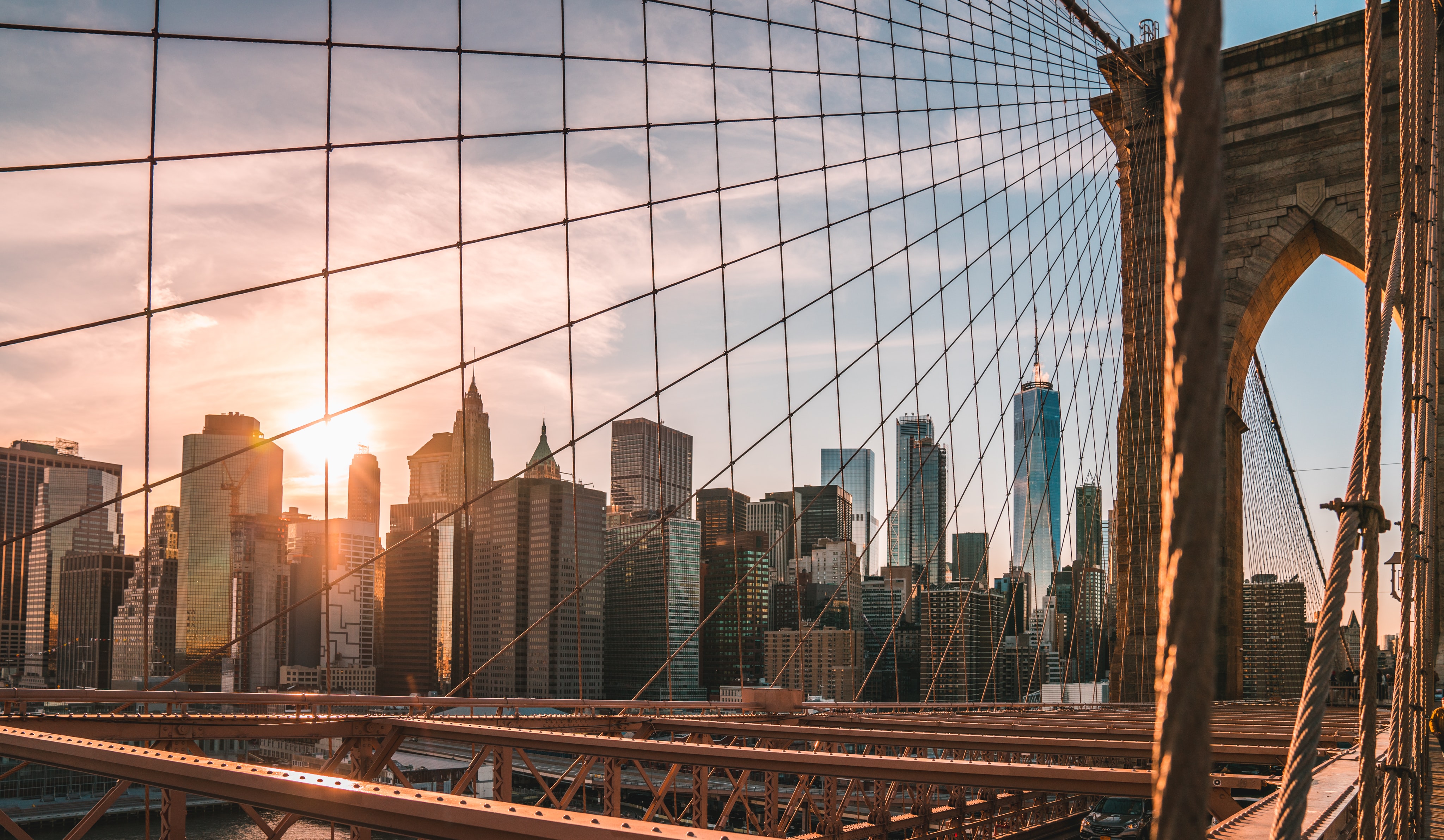
So COVID-19 is a forest fire. While it wreaks destruction in the short term, it will help the overall ecosystem of New York (and other cities) long-term, serving to lower rents so that the city is no longer a playground for only multimillionaires. One of the biggest problems with New York is that living there, you either have the money to enjoy the city, but no time, or the time to enjoy it, but no money. This crisis will lower prices and help address that.
New York isn’t dead. It’s just undergoing a factory reset.
Notes:
More …
August 8, 2020
2020 has been, to put it lightly, a weird year. COVID-19 has upended almost all walks of life, not least of which is education. Right now, thousands of college students are waiting for their universities to tell them if they will be allowed back to campus this fall or if they will take classes online instead.
If you’re one of those students, don’t let your university make the decision for you. Take a gap year.

What is College?
College is an investment. Students pay an upfront cost (tuition) in hopes of a better life: to be richer, have a more rewarding job, marry someone from a higher social class, etc.
The value of college is:
- Signaling & exclusivity – the diploma
- Connections – a social network
- Actual learning – the subject matter
- Social environment – all of the benefits of adulthood with none of the responsibilities
Distance learning only hits #3 on that list. If you attend an elite school, you also get the signaling value of the degree (#1). This raises the question: Is solely learning subject matter worth the cost of college tuition? Is it possible that students would be better served unbundling their college experience and pursuing each of these items independently?
The Business of Higher Education
As a college student, you are the consumer of a product: the package of the four items above. Over the past several decades, universities have grown their total addressable market by offering a more and more attractive product. Tautologically, as they grow this market the average caliber of student decreases. So too does the signaling value; when more people have a degree, each degree is less valuable. To compensate, universities have ramped up their social offerings and invested in the student “experience” – facilities like fancy gyms and dorms, student clubs, and administrative bureaucracy. Throw in loans that are subsidized by the federal government and can’t be discharged even in bankruptcy, and you’re looking at huge inflation in the price of tuition.
Many would characterize this view of college as overly cynical.
What about learning for the sake of learning?
- I’m all for learning for the sake of learning. However, with an internet connection and a few books from your local public library, you can learn almost anything. The question at hand is not whether or not to learn, but about the value and the opportunity cost of spending four years of your life and thousands of dollars paying for a college diploma. Additionally, there is strong evidence that a majority of students don’t actually learn very much in college (or at least don’t retain knowledge).
The value of a college education is intangible and will serve you later in life as a framework for how to think about the world.
- The value of education itself may be intangible, but before spending thousands of dollars on anything it is wise to perform a cost-benefit analysis. This is an argument for lifelong learning; it does not apply to college itself.
If you don’t go to college you’ll irrevocably screw up your life. To get a good job, you need a college degree.
- Not necessarily. It depends on what type of work you want. Some blue collar jobs that don’t require a degree pay extremely well. It also depends on what your college major is. It should come as no surprise that not all majors are created equal. In tech, self-taught software developers have been able to get jobs for many years now. Top companies recognize this and are starting to offer more formal certifications that are affordable alternatives to college.
Nevertheless, I recognize the irony that the majority of people saying “You don’t need a college degree” hold a degree from a top university themselves. The takeaway here is that a college degree is largely a credential; the value of that degree has a high variance depending on your school and major.
Students are starting to wake up to this reality. Harvard can get away with charging full tuition for its online classes because…it’s Harvard. But the majority of schools are in for a rude awakening when they realize that students were paying for the social environment and aren’t willing to, in the words of Good Will Hunting, “Waste $150,000 on an education you coulda got for $1.50 in late fees at the public library.”
Alex Danco argues that positional scarcity will actually increase the impact of universities. Like a peacock’s tail, the uselessness of a degree and its high opportunity cost is a feature, not a bug. This argument works for top universities. But less prestigious university incumbents face a serious challenge from winner-take-all internet competition for the first time. Harvard’s brand will grow stronger. At the same time, “unbundled education” – some combination of MOOCs, work experience, and a social network – will increasingly be seen as a viable alternative to a liberal arts degree from the average institution.
What to Do Now
If you’re a current college student, drop out for at least the next year. It can feel overwhelming, but is actually incredibly easy. There’s no declaration that you have to make to the world; you generally just need to fill out a Leave of Absence form and are welcome back anytime in the next several years (though eventually the credits for the classes you’ve taken do expire).
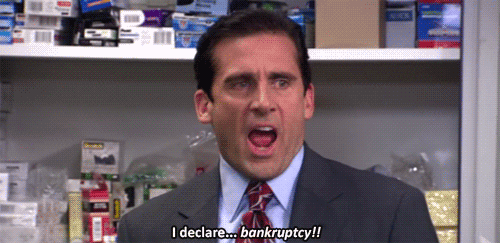
Easier than this, and you won't go bankrupt from student loans
Take some community college courses, work, travel (in a COVID-responsible way…maybe road trips only). This is a unique opportunity to get off of the well-trodden path and far preferable to sitting in front of a computer in your parents’ house for a year. If you’re attending an Ivy or other top school, the case for this is even stronger. Once you get into one of these schools, you’re in the club and have a huge safety net. Best case scenario, you start a business and no longer need Harvard, à la Zuckerberg or Gates. Worst case scenario, you graduate broke at 23 (with some great stories), rather than broke at 22 (sans stories).
Six years ago, I left college for a semester. It was one of the best decisions of my life. I interned at an investment bank and realized that I didn’t want to work in finance. I spent a month backpacking around Australia and New Zealand. I did a lot of soul-searching.
I learned more than I would have in a semester at school. Upon returning to college, I approached my classes with more intensity and a greater appreciation for the social enviornment. If I were king for a day, I’d change the current university system in the US such that you are required to take two years off between high school and college. Engage in service (the Peace Corps model), join the military (the Israeli model), learn how to sell (the Mormon model), travel, work, gain some life experience before commencing your university studies. If more people did this, it would improve the college experience for all by increasing the maturity level of the average college student and intellectual diversity on campus.
What about grad school?
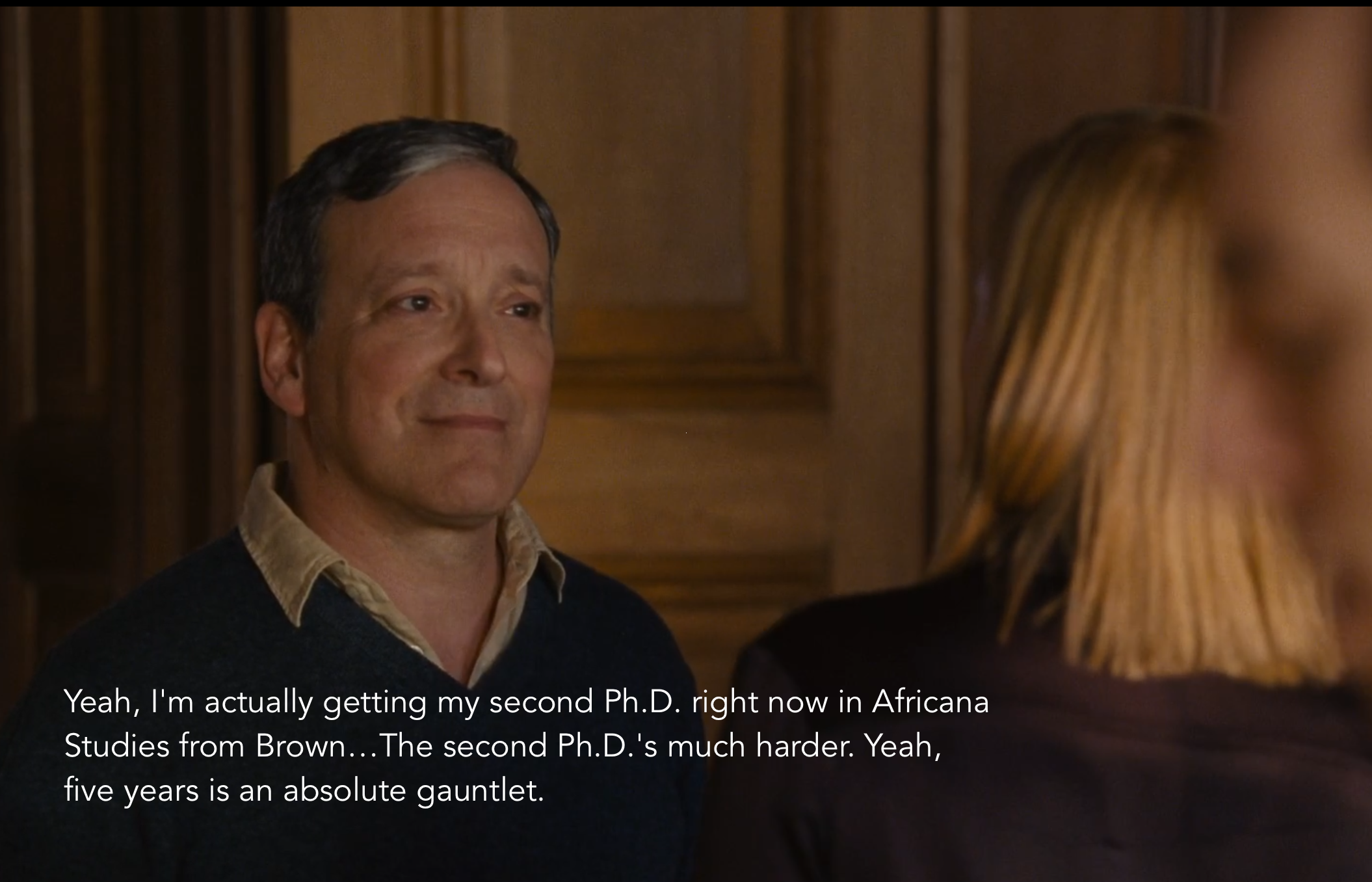
If you want to go to grad school, current circumstances actually present an interesting opportunity. Because many universities have moved online, if you find the right program at the right price, you may be able to get a degree without quitting your job.
However, make sure that you’re not just going to grad school as a form of procrastination. Watching people trying to navigate early adulthood, I’ve seen many acquaintances in a career crisis default to “more school”, without recognizing the opportunity cost of tuition, lost income, and foregone life experience.
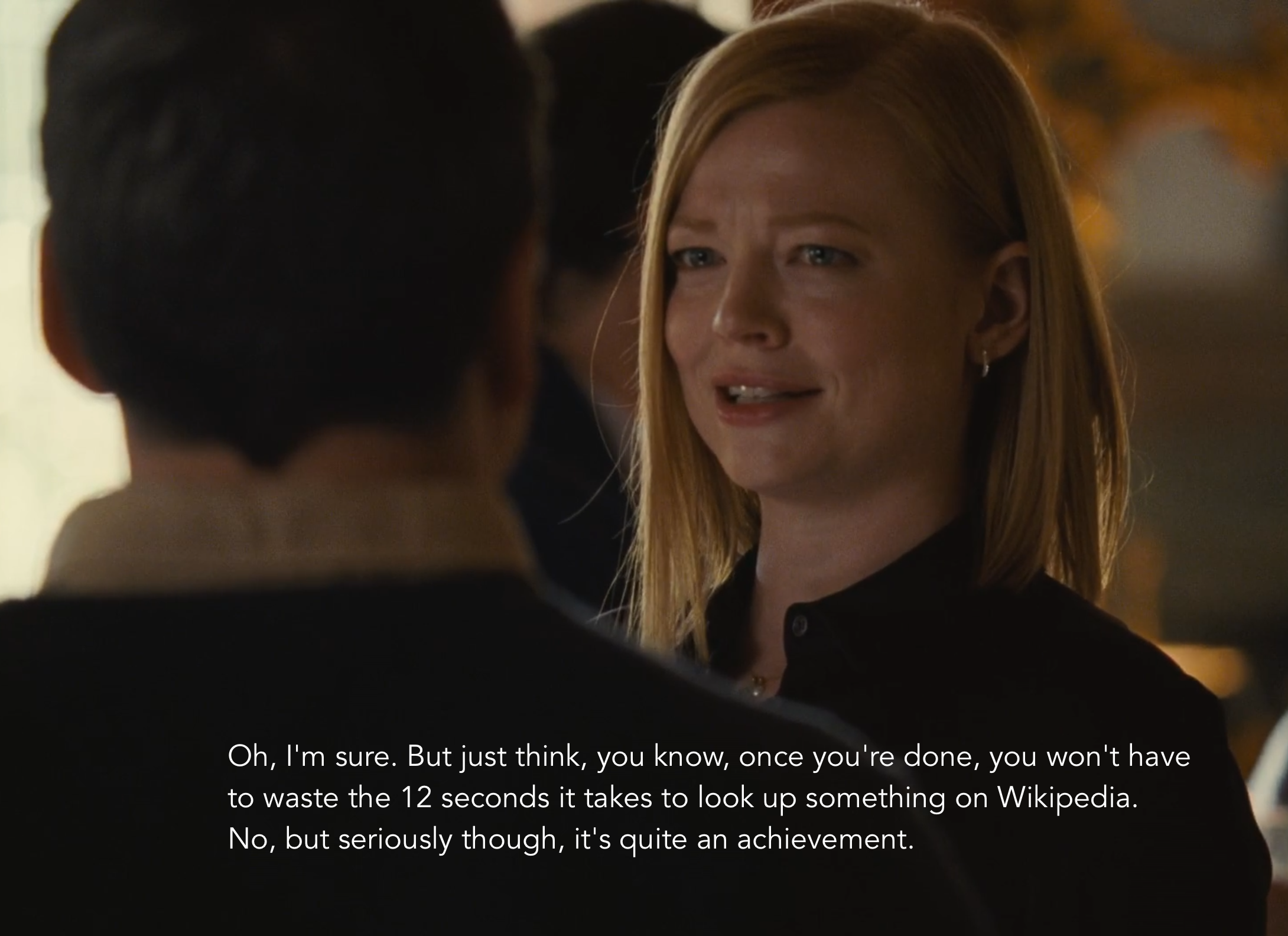
A Rant on MBAs
I’ve been blown away by the number of my LinkedIn contacts who have changed their headline to MBA Candidate at [Harvard / Wharton / etc.] in the past few weeks. They are paying $500,000+ upfront cost (tuition + two years’ lost income) to take online classes. But this defeats the purpose; being an MBA student is essentially paying to have a two year networking party. The hardest part of an MBA program is getting in.
When I was at Wharton as an undergrad, I saw that MBA students’ experience was like being in college, except they had money to spend and grades didn’t matter (due to a grade non-disclosure policy for MBAs). Because of this grade non-disclosure, MBA classes were significantly easier than their undergraduate counterparts. Many classes had an undergraduate section and an MBA section – the same material taught by the same professor. After the midterm and final, the professor would post the median test score and standard distribution in order to establish the grading curve. The median score for the MBA section was consistently 1.5-2 standard deviations below the undergrad median.
The value of an MBA is made up almost entirely of the signaling and the social network provided by attending an elite program. Whether or not to actually get an MBA is a subject for another time (short answer: not worth it unless you’re an investment banker making $250,000 and want to be making $400,000 in Private Equity). However, if you’re dead set on getting an MBA, put off your enrollment until you can take full advantage of the benefits in person.
Notes:
More …
July 26, 2020
For as long as I can remember, I’ve had a sense that time is running out. When I was in college, I felt like I only had a few years to make an impact on the world. Now that I’m 27, and my early 20s have turned into my late 20s, this sense of urgency has only accelerated.
Invictus
I am the master of my fate. I am the captain of my soul. At least that’s what I tell myself. But life is comprised of both decisions that you make and other things that…just happen to you. The more I go through life, the more I realize that what happens to you has a greater impact than the decisions that you make. All we can try to do is shift the relative weights of that equation a little bit.
As a kid, I felt that the future was full of infinite possibilities. I had a million things to learn, books to read, places to travel, and experiences to rack up. I felt like I could be anything I wanted – a theoretical physicist, a musician, an athlete – if only I would dedicate myself to one pursuit.
I still feel like most of my life is ahead of me. But with each day that goes by, the universe of options that I have is quickly shrinking. Every day I decide to continue down my current path, countless other doors are closed off to me.
I started boxing last year. I really love it; it’s the first time I’ve felt dedicated to a sport since I played football in high school. But I will never be an elite boxer. That door has already closed. My athletic peak will probably occur in the next 5 years, if it hasn’t already. I could choose to train as hard as I could at boxing and devote myself to the sport, but even so, my ceiling would be a few amateur bouts. And the opportunity cost of going down that path is high.
You can’t have it all. Life is a series of tradeoffs. That truth, while simple, is hard to accept. It’s difficult to escape the feeling that your 20s is just a series of doors closing to you. Most people don’t even realize that those doors exist; their lives are lived by default. I wonder how much I fall into that camp. How much have I missed out on because I skated by on raw intelligence and didn’t challenge myself for the majority of my life?
When I was 10 years old, I thought that at this point in my life I’d be a pro athlete or a paleontologist. When I was 15, I thought that I’d be running a non-profit in Africa. When I was 20, I thought that I’d be a successful startup founder.
Now I fear that I’m not living up to my potential. By not diving deep into any one area, I’ve had an amazing breadth of experiences, but also worry that I’ve fallen victim to the Optionality Trap. Did I work hard enough over the past 10 years? Did I study the right things? Did I make the right choices?
There is so much I want to learn, experience, and accomplish in life. Despite my best efforts, I’ll only ever do a fraction of those. Life is short and I don’t have the time to do it all. I’m not sure if this feeling goes away with time, or if you just learn to live with it.

The Four Burners Theory
James Clear talks about the Four Burners Theory: there are tradeoffs among the different areas of your life. If your life is represented as a stove, every time you decide to invest time in one of the four burners – family, friends, health, and work – you necessarily lower the heat on your other burners. To be successful, you have to cut off one of your burners. To perform at an elite level, you need to cut off two.
I’ve felt this acutely. I’m trying to:
- Perform well at work
- Get a coffee roasting business off of the ground
- Read and write regularly
- Be a good boyfriend, son, and brother
- Work out hard and reach my athletic potential
- Improve my technical skillset – I’m currently working on a few Coursera classes and have applied for a Masters program in Computer Science
Many days, I feel like I’m barely treading water. By trying to do everything, I excel at nothing.
How to combat this? For me, it’s a combination of:
- Introducing constraints
- Short-term immersion; long-term balance
Introducing Constraints
I am not entirely happy with the final draft of this blog post. If I had worked on it for a few more hours, it would be better. But is the marginal benefit worth the marginal cost? (For those who don’t think in economic terms: Is the juice worth the squeeze?)
I’ve always been a procrastinator. I file an extension for my tax return every year. I’ve written every paper I was assigned in school the night before it was due. So I have tangibly experienced two truths:
- Work will fill the time allotted for it (Parkinson’s Law).
- “Done” is always better than “perfect…but not yet launched”.
I think often of the story of the clay pots, from the book Art & Fear.
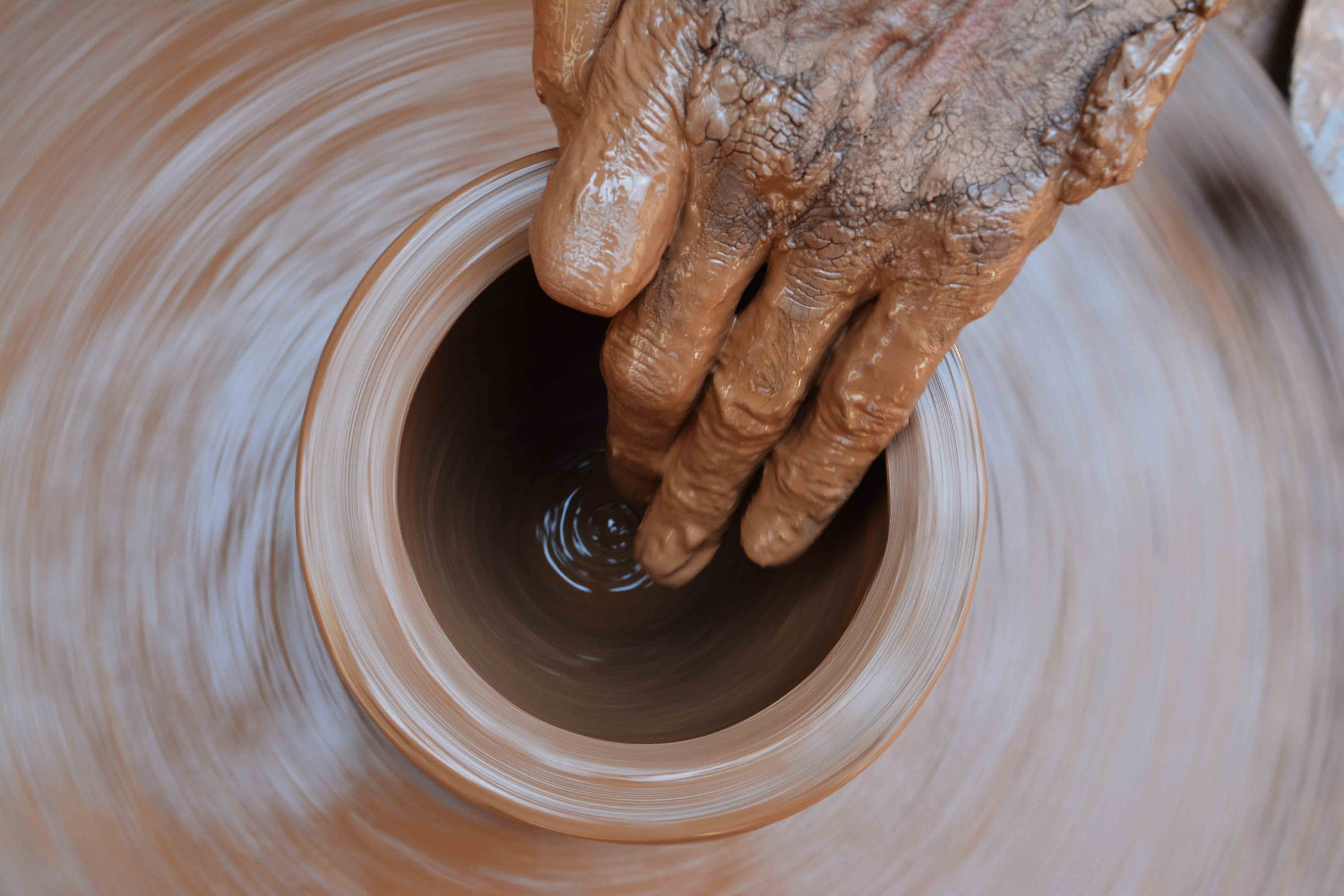
The ceramics teacher announced on opening day that he was dividing the class into two groups. All those on the left side of the studio, he said, would be graded solely on the quantity of work they produced, all those on the right solely on its quality. His procedure was simple: on the final day of class he would bring in his bathroom scales and weigh the work of the “quantity” group: fifty pound of pots rated an “A”, forty pounds a “B”, and so on. Those being graded on “quality”, however, needed to produce only one pot – albeit a perfect one – to get an “A”. Well, came grading time and a curious fact emerged: the works of highest quality were all produced by the group being graded for quantity. It seems that while the “quantity” group was busily churning out piles of work – and learning from their mistakes – the “quality” group had sat theorizing about perfection, and in the end had little more to show for their efforts than grandiose theories and a pile of dead clay.
By time-boxing tasks and letting go of the pursuit of perfection, I can produce both a greater quantity and quality of work.
The overarching constraint in life is time. The clock is ticking: we will all die. Without this constraint, we wouldn’t have the motivation to do anything. Paradoxically, embracing constraints can lead to better long-term results.
Short-term Immersion; Long-term Balance
I’ve found that intense learning over short periods of time is superior to casual learning over longer periods of time. I took Spanish from second grade through college, but I only improved dramatically when I studied abroad for a semester in Buenos Aires. Those first few weeks in Argentina, I struggled, but by pushing through the pain period I was able to become functionally fluent. Since then, my Spanish abilities have declined, but I can reactivate my Spanish when necessary.
Likewise, to make substantial progress in any area of my life I need to get into a flow state, a period of obsession where all I’m thinking about is this blog or Cadena Coffee. Today, I worked on this blog post and spent time with family. I didn’t make any progress in my health or work-related goals. That’s okay.
By diving deep and solely focusing on 1-2 burners for a burst of a week, month, or quarter, I can make drastic progress in those areas – progress that I wouldn’t be able to make in the same number of hours spread out over a period of time. So while my life may not have balance at any single point in time, over the long-run I can make progress in all of the areas that I care about.
More …
May 27, 2020
It’s been about two months since my last post. That’s reflective of a strange reality – at least for me, March felt like a year while April and May felt like a week.
Nobody knows what’s going on. Some of the best data has come from *checks notes* Kevin Systrom, Instagram co-founder. Slate Star Codex has turned to satire.
Remember when we all thought that the key to escaping Coronavirus was washing our hands and not touching our faces? ’Twas a simpler time, back when everyone outside of a hospital was talking about Coronavirus, not COVID-19.
Empire State of Mind
In the past two months, the public health crisis in New York has gone from a state of foreboding, to bad, to strangely…fine?
A few weeks ago, ER doctors at local hospitals were talking through the ethics of triage. Hospital employees were sneaking in PPE due to shortages, yet were threatened with disciplinary action (including termination) if they went forward to the media. Health care workers who were nearly certain they had contracted COVID could not get a test.
But now, things have largely stabilized. Antibody tests suggest that many more New Yorkers have had COVID than we initially thought (though we’re now not sure how much we can trust the tests’ accuracy). Regardless, hospitals are no longer overwhelmed.
Ho Hey
Where I live in Chinatown the streets are empty. The city is much quieter, but at the same time the emptiness makes it feel more dangerous.
The days have all blended together. On work calls, people forget what day it is. The men are quarantine chic: beards combined with hair that is either way too short or too long. It’s the era of buzz cuts and man buns.
Working at a health insurance company right now feels a little bit like arguing about what music the band should play as the Titanic sinks. Work-life balance has disappeared, at least for those of us still lucky enough to have jobs. We’re suffering from Zoom fatigue. We’re going to see a lot of burnout in the next few months.
When I go outside, people in the city seem to be on the same page. We give each other a wide berth in the streets. Two months ago, only a few people wore masks. Now, everyone does.
I’ve settled into a tenuous post-apocalyptic, yet civilized, routine. Ride Citi Bikes to Brooklyn. Grab a to-go beer from the brewery while dressed like a bank robber. Sit in the park, enjoying the sun while avoiding other people.

Walk on the Wild Side
In my personal experience and in the city more broadly, COVID has highlighted the disparity between the haves and the have-nots. This reality has manifested itself both in the public health crisis and in the interrelated economic crisis.
With regards to health, the crisis has disproportionately affected lower-income individuals, who don’t have the privilege of working from home. Then Elmhurst Hospital in Queens becomes a war zone, while NYU Langone is largely fine.
We lionize “essential workers” in the same way that we honor the military. Your delivery driver doesn’t want to be a hero. The 18-year-old that we send off to fight for oil overseas isn’t a hero. We call them heroes in an act of cognitive dissonance, to feel less guilty about an inherently unequal societal and economic structure. I’m an avowed capitalist. Yet the current situation has made me feel like a resident of Omelas.
The rich have fled the city, leaving only the hardcore New Yorkers or those without the means to leave. Long Island beaches are closing to NYC residents, making the “Locals Only” t-shirts more than a joke.
We’re starting to enter the next phase of this crisis. People are still cheering for the essential workers at 7pm, but have also started to recognize these vast disparities. Some are picking up assets on sale while others would just be happy to have a job.
We’re all in this together…but some people are a lot more “in this” than others.
Zooming out, big companies are weathering this storm much better than small ones. Big companies have greater access to capital, bargaining power, and/or enough cash reserves to ride this out. Unless the government steps in much more than they have already, we’re going to see the local mom-and-pop shops go out of business around the country (especially in areas with high rents) and be replaced by branches of Chase Bank and Starbucks. PPP loans can only provide a few months of runway.
Summer in the City
What is the endgame here? It’s not clear to me what the long-term plan is. Shutdowns were never supposed to be more than a way to buy time, to ease the strain on the healthcare system. We haven’t implemented any of the playbook.
There’s an interesting paradigm shift in which the Silicon Valley intelligentsia who were warning of COVID’s spread and clamoring for shutdowns back in February and March are now saying that we will destroy people’s lives if we don’t open up the economy.
But when we open back up, how do we prevent another shutdown in a few months? There are a few ways this could play out.
- We emulate Hong Kong and Singapore to crush the virus (potentially also squashing civil liberties).
- We put up with rolling shutdowns over the next few years as we wait for a vaccine. The current status quo lasts much longer than people think it will.
- We put our heads in the sand and hope that the virus magically disappears. Millions die before we reach herd immunity.
- We were all wrong about how dangerous and prevalent this virus actually is, and we’re going to recover rapidly.
Option 1 seems politically unviable in the U.S. Perhaps with a much more deadly disease, but not with this one.
Option 2 is the path that we’re currently headed down. But is it sustainable? With paychecks gone and evictions coming in a few months, how long until people start rioting? The marches on state capitols has been a bit of a joke, but they seem like harbinger of unrest to come. People are thinking about buying ammo.
Option 3 is self-explanatory. It’s Option 2 with no shutdown actions. Additionally, there is evidence of potential longer-term adverse effects for those who contracted COVID.
Option 4 would be great, but is unsupported by the data. Medically, there hasn’t yet been a definitive answer about the number of asymptomatic cases. This may be our closest guess. Economically, we are in a race to increase consumer spending enough to save businesses and get workers re-hired. However, data out of the U.S. and China don’t paint a rosy picture on that front. I suspect most people will be hesitant to attend a crowded concert or travel through a busy airport, even after the lockdowns end.
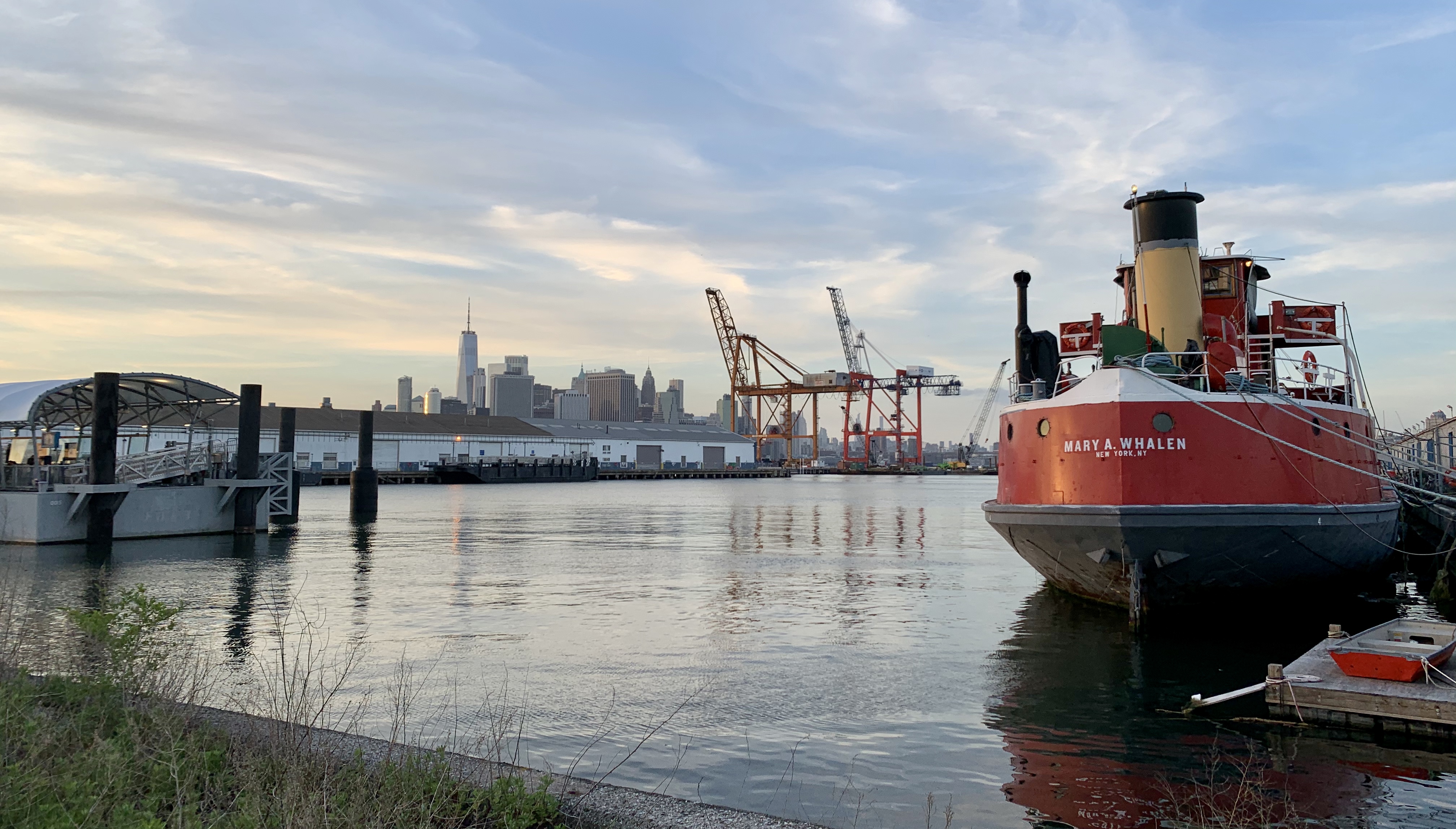
But based on the number of people sitting in parks (at a respectable distance from one another), I don’t buy the doom and gloom about the long-term end of public gatherings. We are social creatures, so while everything carries a huge sense of weight right now, it’s important to keep in mind that this has all happened before.
Notes:
More …
March 29, 2020
The best posts that I read this week. Given what’s going on in the world, all are SARS-CoV-2/COVID-19/Coronavirus-related.
Links
Quick Update
In my last post, I referenced a bar that has turned into a general store. I walked by it this week and snapped a photo.

It’s a cool concept. But it seems like there are a lot of people hanging around outside of it, which defeats the purpose of social distancing.
More …












